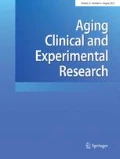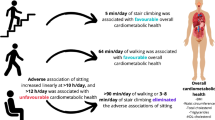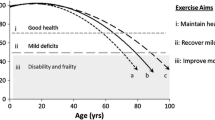Abstract
Background
Cognitive activity in early and late life has been associated with increased cognitive function among older adults. There is less evidence on the effects of midlife cognitive activity.
Aims
We examined the association of midlife cognitive activity with cognitive function after age 65.
Methods
We studied 78 men 68 years old or older. We asked participants to assess their current and midlife cognitive activity using adaptations of a measure created by Wilson et al., which includes reading, writing letters, visiting museums and other leisure activities. Our outcomes were validated measures of cognitive and overall function. We compared midlife cognitive activity to our outcome measures in simple bivariable analyses, then adjusted for demographic characteristics using linear regression.
Results
Our study population of older (mean age 74.8 years) men was primarily white (87%) and well-educated; 65% had at least some post high school education. Although 67% were retired, household income was high (24% < $30 k and 44% > $50 k). More midlife cognitive activity was related to more current cognitive activity (p = < .0001, r2 = 0.55339). However, midlife activity was not associated with measures of cognitive or overall function, adjusted analyses gave similar results.
Discussion
We did not find an association between midlife cognitive activity and later life function. However, the Wilson measure of cognitive activity that we used excludes instrumental cognitive activities such as dealing with finances or healthcare, likely underestimating cognitive activity for many participants.
Conclusion
Midlife cognitive activity was associated with late-life cognitive activity, suggesting efforts to increase late-life cognitive activity may need to start earlier in life. However, more robust measures of everyday cognitive activity might detect such an association.

Similar content being viewed by others
Data availability
Deidentified dataset available on request.
Code availability
Available on request.
References
Hudomiet P, Hurd MD, Rohwedder S (2018) Dementia prevalence in the United States in 2000 and 2012: estimates based on a nationally representative study. J Gerontol B Psychol Sci Soc Sci 73:S10–S19
Alzheimer’s Association (2019) 2019 Alzheimer’s disease facts and figures. Alzheimers Dement 15:321–387
Alzheimer’s Association (2018) 2018 Alzheimer’s disease facts and figures. Alzheimers Dement 14:367–429
Awang H, Mansor N, Nai Peng T et al (2018) Understanding ageing: fear of chronic diseases later in life. J Int Med Res 46:175–184
Wilson RS, Segawa E, Boyle PA et al (2012) Influence of late-life cognitive activity on cognitive health. Neurology 78:1123–1129
Wilson RS, Boyle PA, Yu L et al (2013) Life-span cognitive activity, neuropathologic burden, and cognitive aging. Neurology 81:314–321
Jonaitis E, La Rue A, Mueller KD et al (2013) Cognitive activities and cognitive performance in middle-aged adults at risk for Alzheimer’s disease. Psychol Aging 28:1004–1014
Rebok GW, Ball K, Guey LT et al (2014) Ten-year effects of the advanced cognitive training for independent and vital elderly cognitive training trial on cognition and everyday functioning in older adults. J Am Geriatr Soc 62:16–24
McDougall GJ Jr, Becker H, Pituch K et al (2010) The SeniorWISE study: improving everyday memory in older adults. Arch Psychiatr Nurs 24:291–306
Ball K, Berch DB, Helmers KF et al (2002) Effects of cognitive training interventions with older adults: a randomized controlled trial. JAMA 288:2271–2281
Friedman SM, Mulhausen P, Cleveland ML et al (2019) Healthy aging: American geriatrics society white paper executive summary. J Am Geriatr Soc 67:17–20
Global Council on Brain Health (2017) Engage your brain: GCBH recommendations on cognitively stimulating activities. Global Council on Brain Health, Washington, D.C.
Hultsch DF, Hertzog C, Small BJ et al (1999) Use it or lose it: engaged lifestyle as a buffer of cognitive decline in aging? Psychol Aging 14:245–263
Nasreddine ZS, Phillips NA, Bedirian V et al (2005) The Montreal Cognitive Assessment, MoCA: a brief screening tool for mild cognitive impairment. J Am Geriatr Soc 53:695–699
Wilson RS, Barnes LL, Krueger KR et al (2005) Early and late life cognitive activity and cognitive systems in old age. J Int Neuropsychol Soc 11:400–407
Middleton LE, Barnes DE, Lui LY et al (2010) Physical activity over the life course and its association with cognitive performance and impairment in old age. J Am Geriatr Soc 58:1322–1326
Patel KV, Coppin AK, Manini TM et al (2006) Midlife physical activity and mobility in older age: The InCHIANTI study. Am J Prev Med 31:217–224
Gale SD, Baxter L, Connor DJ et al (2007) Sex differences on the Rey Auditory Verbal Learning Test and the Brief Visuospatial Memory Test-Revised in the elderly: normative data in 172 participants. J Clin Exp Neuropsychol 29:561–567
Berg JL, Durant J, Banks SJ et al (2016) Estimates of premorbid ability in a neurodegenerative disease clinic population: comparing the Test of Premorbid Functioning and the Wide Range Achievement Test, 4th Edition. Clin Neuropsychol. 30:547–557
Brandt J, Benedict RHB (2001) Hopkins verbal learning test professional manual. Psychological Assessment Resources, Inc, Lutz, FL
Reitan RM, Wolfson D (2003) Theoretical, methodological, and validational bases of the halstead-reitan neuropsychological test battery. In: Goldstein G, Beers SR, Hersen M (eds) Comprehensive handbook of psychological assessment: intellectual and neuropsychological assessment. John Wiley & Sons Inc, pp 105–131
Selim AJ, Rogers W, Fleishman JA et al (2009) Updated U.S. population standard for the Veterans RAND 12-item Health Survey (VR-12). Qual Life Res 18:43–52
LaVela SL, Etingen B, Miskevics S et al (2019) Use of PROMIS-29® in US Veterans: diagnostic concordance and domain comparisons with the general population. J Gen Intern Med 34:1452–1458
Reed BR, Dowling M, Tomaszewski Farias S et al (2011) Cognitive activities during adulthood are more important than education in building reserve. J Int Neuropsychol Soc 17:615–624
Landau SM, Marks SM, Mormino EC et al (2012) Association of lifetime cognitive engagement and low β-amyloid deposition. Arch Neurol 69:623–629
Acknowledgements
We acknowledge the administrative support of Deborah Dye. We acknowledge the use of space and equipment provided by the Clement J Zablocki VA Medical Center. We especially acknowledge the contribution of the Veterans who participated in this study.
Funding
‘This work was supported by the National Institute on Aging of the National Institutes of Health under (Award Number T35AG02979) and by the National Center for Advancing Translational Sciences, National Institutes of Health, (Award Number 2UL1TR001436). The content is solely the responsibility of the author(s) and does not necessarily represent the official views of the NIH.
Author information
Authors and Affiliations
Corresponding author
Ethics declarations
Conflict of interest
We have no known conflict of interest or competing interests.
Ethical Standards
This study was approved by the Subcommittee on Human Studies of the Clement J Zablocki VA Medical Center’s Research and Development Committee. This is the Institutional Review Board for this facility. The study ID is 9392-26.
Informed consent
All study participants provided written informed consent prior to any study procedures.
Additional information
Publisher's Note
Springer Nature remains neutral with regard to jurisdictional claims in published maps and institutional affiliations.
Supplementary Information
Below is the link to the electronic supplementary material.
Rights and permissions
About this article
Cite this article
Cotter, A., Kim, J., Semons-Booker, K. et al. Influence of mid-life cognitive activity on cognitive function among men aged 68 years or older. Aging Clin Exp Res 33, 2689–2694 (2021). https://doi.org/10.1007/s40520-021-01825-y
Received:
Accepted:
Published:
Issue Date:
DOI: https://doi.org/10.1007/s40520-021-01825-y




